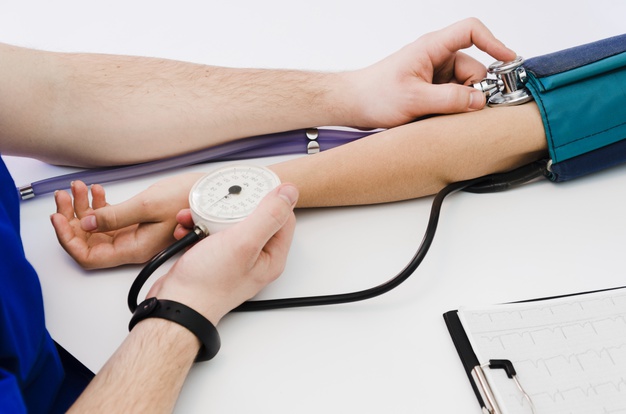Meat is a staple in many diets, offering essential nutrients like protein, iron, and B vitamins. However, not everyone’s digestive system can process it efficiently. When your body struggles to break down meat, it sends clear warning signals. Ignoring these signs can lead to chronic discomfort, nutrient deficiencies, and long-term health risks.
In this article, we’ll explore eight red flags that suggest your body isn’t digesting meat properly, along with actionable solutions to restore gut health.
Poor Digestion of Meat
1. Persistent Constipation After Eating Meat

If you regularly experience constipation after consuming meat, your digestive system may be struggling to process its high protein and fat content. Red meat, in particular, lacks fiber—a key nutrient for bowel regularity—which can slow digestion and leave you feeling bloated and uncomfortable.
Undigested meat lingering in the intestines can also disrupt gut bacteria balance, worsening constipation. A 2021 study in the Journal of Nutrition linked high red meat consumption to reduced bowel movement frequency.
What to do:
Consider digestive enzymes like proteases to aid protein breakdown.
Balance meat-heavy meals with fiber-rich vegetables, whole grains, or legumes.
Stay hydrated to help move waste through the digestive tract.
2. Constantly Feeling Hungry, Even After Meals

Meat is rich in protein, which should promote satiety. However, if you’re always hungry after eating meat, it could signal poor protein absorption. When your body fails to break down meat effectively, it misses out on amino acids, triggering hunger cues as it seeks missing nutrients.
This issue is often tied to low stomach acid or insufficient digestive enzymes. Over time, chronic undernutrition can lead to cravings for sugary or carb-heavy snacks.
What to do:
Consult a healthcare provider about testing for low stomach acid (hypochlorhydria).
Try marinating meat in acidic ingredients (lemon juice, vinegar) to pre-digest proteins.
3. Dark Circles Under the Eyes (“Meat Hangover”)
Persistent dark circles under the eyes may indicate a “meat hangover,” where undigested proteins leak into the bloodstream through a permeable gut lining (leaky gut syndrome). This triggers inflammation, causing fluid retention and visible puffiness.
Research in Gut Pathogens highlights that poor protein digestion increases toxins like ammonia, which strain the liver and manifest as facial discoloration.
What to do:
Incorporate anti-inflammatory foods like turmeric, ginger, and leafy greens.
Reduce processed meat intake and opt for lean, organic cuts.
4. High Blood Pressure and Red Meat Consumption

Frequent meat consumption, especially processed varieties like bacon and sausages, is linked to elevated blood pressure. These products are high in sodium and saturated fats, which stiffen arteries and strain the cardiovascular system.
A 2020 report by the American Heart Association found that replacing red meat with plant-based proteins lowers hypertension risk by 14%.
What to do:
Monitor sodium intake and prioritize potassium-rich foods (avocados, bananas).
Limit processed meats and choose grilled chicken, turkey, or fish.
5. Bad Breath and Body Odor After Eating Meat

If you notice foul breath or body odor after meat-heavy meals, your gut may be fermenting undigested proteins. Sulfur compounds in meat (like those in beef and pork) feed odor-causing bacteria in the mouth and intestines.
Additionally, excessive ammonia production from protein breakdown can exit through sweat, worsening body odor.
What to do:
Use probiotics to balance gut bacteria and reduce sulfur gas production.
Chew thoroughly to kickstart digestion with salivary enzymes.
6. Persistent Bloating or Gas
Meat’s dense structure makes it harder to digest than plant-based foods. When inadequately broken down, it ferments in the gut, releasing gas and causing bloating. Fatty cuts like ribeye steak take even longer to process, prolonging discomfort.
A study in Clinical Gastroenterology notes that high meat intake correlates with increased bloating and IBS symptoms.
What to do:
Pair meat with digestive herbs like peppermint or fennel.
Opt for smaller portions of lean meats (chicken breast, fish).
7. Weakened Immune System and Frequent Illness

Nearly 70% of your immune system resides in the gut. When undigested meat particles irritate the intestinal lining, chronic inflammation can weaken immune responses, making you prone to infections.
Zinc and iron deficiencies—common in those with poor meat digestion—also impair white blood cell function.
What to do:
Heal the gut with collagen-rich bone broth or L-glutamine supplements.
Incorporate zinc-rich foods like pumpkin seeds or shellfish.
How to Improve Meat Digestion: 5 Actionable Tips
Limit Processed Meats: Choose grass-fed, organic options to avoid additives.
Cook Meat Thoroughly: Slow-cooking or stewing breaks down collagen and connective tissues, easing digestion.
Try Digestive Enzymes: Supplements like betaine HCl or pancreatin support protein and fat breakdown.
Stay Hydrated: Water aids enzyme activity and prevents constipation.
Chew Mindfully: Chewing meat 20–30 times per bite reduces gut workload.
Final Thoughts
Ignoring your body’s signals about meat digestion can lead to long-term health issues. By recognizing these eight signs early and adjusting your diet, you can enjoy meat without discomfort. If symptoms persist, consult a gastroenterologist or nutritionist for personalized care.
References:
Protein Digestion and Enzyme Supplements (Healthline)









